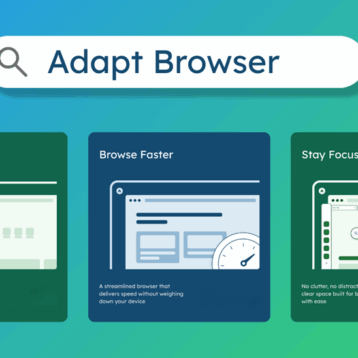While 80% of organizations are considering the adoption of AI by 2025, how prepared is your business for this integration? Artificial intelligence is taking a central position in modern business operations, and the need to adopt AI has been pressing. In any case, the advantages of AI, like easing processes and making customers’ experiences more personalized to help in making better decisions, will only be accrued when the organization is fully ready for the integration.

Without this readiness, organizations are at the risk of having project failures, a low return on investment, and even misusing AI. In this article, we are discussing how consultants determine whether an organization is ready to adopt artificial intelligence and what steps businesses can take in order to be in a better position to have a successful AI journey.
Understanding AI Readiness: What Does It Mean?
AI readiness indicates the capability of an organization to correctly integrate, support, and scale AI technologies. It is way more than having the best tools; it embodies the base infrastructure, talent, culture, and governance that may support the demands and great promise of AI.
Organizations are often judged on the AI maturity model, which essentially describes the stages of development along the AI journey. It typically involves data infrastructure, skills, leadership, and governance components that provide a structured means for assessing how well an organization is set up to adopt, execute, and scale AI initiatives. High AI maturity reflects readiness on the part of a company to leverage AI effectively and evolve practices with the advancement in technologies.
Why Assess AI Readiness?
Beginning AI without proper setup means everything from wasted investment and abandoned projects, passing by inadequate data governance to even potential compliance issues. Unfortunately, these are usually errors that occur due to lack of major foundations: accessible, quality data, or an informed team. These mistakes stand in the way of operating AI effectively and decrease the chances of getting a good return on investment.
Readiness assessments are believed to be vital for setting up organizations for success regarding meaningful AI implementations. When prepared, companies are set not only for AI integration but also for sustained competitive advantage and operational efficiencies through the possible creation of new value streams that will enhance their market positioning.
Key Components of an AI Readiness Assessment
A solid data infrastructure is, therefore, the backbone of every good AI strategy: systems that ensure quality, accessibility, and security of the data. AI needs data to survive, and the organization should be prepared in terms of reliable collection, cleaning, and storage. The review will go over architecture, quality controls of the data, and accessibility against the high standards of AI.
Talent and Skills
AI projects require a different mix of competencies within the organization, ranging from technical skills such as data scientists and AI engineers to business leaders with AI literacy. Consultants assess current talent and the firm’s commitment to additional training in order to ensure that the workforce can operate AI technologies competently and integrate it into the wider business strategy.
Technology and Tools
In most scenarios, effective deployment of AI requires focused investments in technology ranging from high-performance hardware to software frameworks and cloud resources. This area of assessment brings into view whether the company has proper technological infrastructure to support AI operations, ensuring compatibility and scalability for future projects.
Leadership and Culture
AI adoption requires executive buy-in and a culture open to innovation. Consultants assess whether leaders in the organizational setup have developed any strategic vision for AI with the agility to lead transformation. They also assess the enterprise’s openness to change and innovation, which plays a very vital role in the adoption and sustainability of AI inside the organization.
Governance and Ethics
Governance structures form part of the mechanism for managing ethical and compliance considerations with respect to AI. Consultants review whether policies related to AI ethics, data privacy, accountability, and transparency exist. These components of governance help ensure responsible implementation of AI, minimize risks, and maintain compliance with regulatory requirements.
The Consultant’s Approach to Assessing AI Readiness
They apply different kinds of frameworks in their readiness assessment, including AI maturity assessment, readiness checklists, and targeted workshops. These various methodologies allow consultants to draw information in structured ways and assess critical readiness areas for comprehensive insight into the preparedness of the organization in AI adoption.
Stakeholder Interviews
Cross-functional stakeholder interviews are also revealing in the general organizational readiness, AI knowledge, goals, and concerns. In-depth interviews with departmental heads-consultants have a vision of the exact preparedness of every functional area toward AI, and actually notice potential resistors or understanding gaps.
Quantitative Metrics
Quantitative metrics can involve a consultant in data quality scores, skill assessments, or technical benchmarks. Such metrics give them a clear picture of the current state of readiness by highlighting the areas that need improvement and therefore, the prioritization of recommendations.
Practical Steps to Boost AI Readiness
Data Improvement Initiatives
Enhancing data quality and access is at the heart of every AI undertaking. Organizations may facilitate improvement in data systems by doing routine data cleaning, setting up data governance systems, and establishing mechanisms to efficiently store and retrieve data.
Upskilling and Reskilling Programs
The process of developing a workforce skilled in AI and data science stands at the core of AI readiness. AI literacy programs for executives, targeted training for technical staff, and creating a well-equipped talent pipeline that can support AI initiatives at every touchpoint are what companies should be prepared to undertake in investing in AI.
Pilot Programs
One of the best ways to test organizational readiness is by running small AI pilot projects. In projects like these, experience is gained when unexpected issues are worked out, buy-in is developed based on demonstrated potential, and scaling up is done.
Building an AI Strategy
A well-defined AI strategy ensures alignment: it integrates AI consulting services with general business goals. Organizations should rationalize their objectives, define success metrics, and outline an execution plan. The strategic alignment ensures that the AI projects align with broader priorities in a business while exhibiting measurable value.
To Sum Up
Assessing AI readiness is an important first step for the organizations looking to embrace AI. Even the best-intentioned projects will struggle to deliver value if not adequately prepared. Consulting services introduce structure into a readiness assessment to identify gaps that will prepare an organization for the rigors of AI technology. Investment in readiness assessment makes sense for companies considering AI as it supports not only a strong foundation but also primes them for sustained success. Going forward, improvements in both AI readiness tools and methodologies will yield even more granular, available, and actionable insights that can leverage AI in all sorts of organizations.










